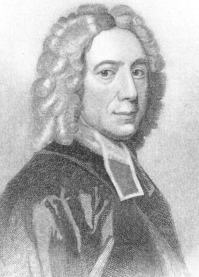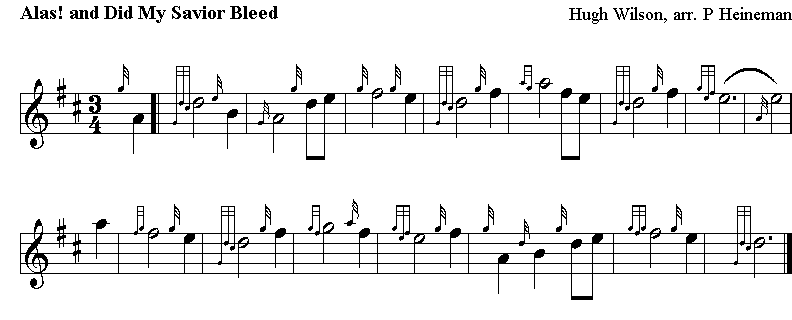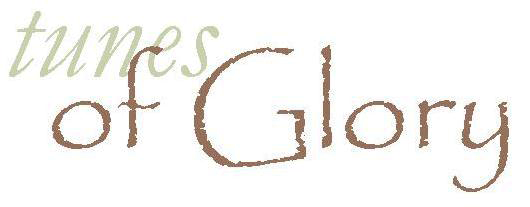
Best viewed in
Internet Explorer
Music (PDF)
Midi
Music (BMW)
Back to

Updated
09/03/2020 |
Alas! and Did My Savior Bleed
|

Isaac Watts |
Isaac
Watts
(July 17, 1674 – November 25, 1748) is recognized as the "Father
of English Hymnody", as he was the first prolific and popular
English hymn writer, credited with some 750 hymns.
Born in Southampton, Watts was brought
up in the home of a committed Nonconformist — his father, also
Isaac Watts, had been incarcerated twice for his controversial
views. At King Edward VI School (where one of the houses is now
named "Watts" in his honor), he learned Latin, Greek and Hebrew.
Watts, unable to go to either Oxford
or Cambridge due to his Non-conformity, went to the Dissenting
Academy at Stoke Newington in 1690, and much of his life
centered around that village, then a rural idyll but now part of
Inner London.
His education led him to the pastorate
of a large Independent Chapel in London, and he also found
himself in the position of helping trainee preachers, despite
poor health. Taking work as a private tutor, he lived with the
non-conformist Hartopp family at Fleetwood House, Abney Park in
Stoke Newington, and later in the household of Sir Thomas Abney
and Lady Mary Abney at Theobalds, Cheshunt, in Hertfordshire,
and at their second residence, Abney House, Stoke Newington.
Though a non-conformist, Sir Thomas practiced occasional
conformity to the Church of England as necessitated by his being
Lord Mayor of London 1700–01. Likewise, Isaac Watts held
religious opinions that were more non-denominational or
ecumenical than was at that time common for a non-conformist,
having a greater interest in promoting education and
scholarship, than preaching for any particular ministry. |
On the death of Sir Thomas
Abney, Watts moved permanently with his widow and her remaining daughter
to Abney House, a property that Mary had inherited from her brother,
along with title to the Manor itself. The beautiful grounds at Abney
Park, which became Watts' permanent home from 1736 to 1748, led down to
an island heronry in the Hackney Brook where he sought inspiration for
the many books and hymns he wrote. He is likely to have attended the
nearby Newington Green Unitarian Church, as "in later life [he] was
known to have adopted decidedly Unitarian opinions."
He died in Stoke Newington and
was buried in Bunhill Fields, having left behind him a massive legacy,
not only of hymns, but also of treatises, educational works, essays and
the like. His work was influential amongst independents and early
religious revivalists in his circle, amongst whom was Philip Doddridge,
who dedicated his best known work to Watts. On his death, Isaac Watts'
papers were given to Yale University, an institution with which he was
connected due to its being founded predominantly by fellow Independents
(Congregationalists).
The words are set to the tune, Martyrdom, attributed to Hugh Wilson.
Wilson was born in
1766, Fenwick
(near Kilmarnock), Ayrshire, Scotland. Wilson taught mathematics and
music, led the local choir, and made sun dials. In 1800, he moved to the
town of Pollokshaws, and later to Duntocher.

Lyrics by Isaac Watts
|
|
Alas!
and did my Savior bleed
And did my Sovereign die?
Would He devote that sacred head
For sinners such as I?
[originally, For such a worm as I?]
Refrain
At
the cross, at the cross where I first saw the light,
And the burden of my heart rolled away,
It was there by faith I received my sight,
And now I am happy all the day!
Thy body slain, sweet Jesus, Thine—
And bathed in its own blood—
While the firm mark of wrath divine,
His Soul in anguish stood.
Was it for crimes that I had done
He groaned upon the tree?
Amazing pity! grace unknown!
And love beyond degree! |
Well
might the sun in darkness hide
And shut his glories in,
When Christ, the mighty Maker died,
For man the creature’s sin.
Thus might I hide my blushing face
While His dear cross appears,
Dissolve my heart in thankfulness,
And melt my eyes to tears.
But drops of grief can ne’er repay
The debt of love I owe:
Here, Lord, I give my self away
’Tis all that I can do. |
|



